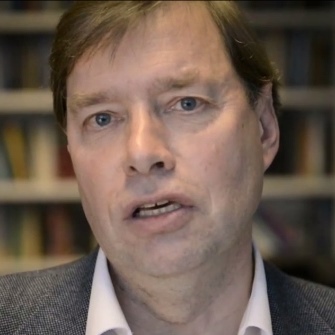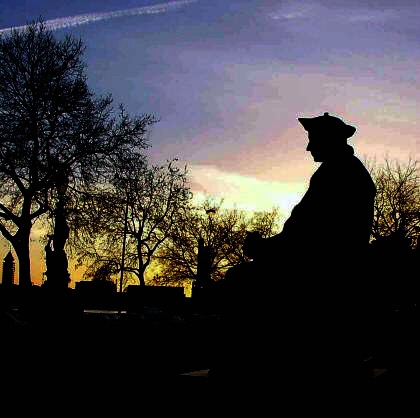 Thomas More’s Utopia was published 500 years ago, in 1516, following discussions that had started in Antwerp the previous year. John Hills has been part of a European research programme on contemporary poverty reduction in Europe co-ordinated by Antwerp University, and was asked to reflect on connections between More’s fable and today’s debates. Utopians would generally not behave badly, he writes. Their behaviour was not reinforced by tangible incentives but by a cultural belief in lifetime honours, after death rewards and punishment on one hand, and a fear of being shamed if they behaved badly on the other. Today, he explains, this balance has disappeared.
Thomas More’s Utopia was published 500 years ago, in 1516, following discussions that had started in Antwerp the previous year. John Hills has been part of a European research programme on contemporary poverty reduction in Europe co-ordinated by Antwerp University, and was asked to reflect on connections between More’s fable and today’s debates. Utopians would generally not behave badly, he writes. Their behaviour was not reinforced by tangible incentives but by a cultural belief in lifetime honours, after death rewards and punishment on one hand, and a fear of being shamed if they behaved badly on the other. Today, he explains, this balance has disappeared.
Today the debate on social security and anti-poverty strategy is dominated by worries about incentives and disincentives. Will people work if they can get an income without having to do so? Do heavily means-tested systems mean that people see little extra gain from doing more so they won’t bother? And do expensive welfare states require such high tax rates that taxpayers will work less, retire early or not bother to take investment risks? There were no such worries in Utopia. There:
“the head of each household searches out [from central warehouses] whatever he or his household needs and carries away their requirements without any payment or recompense. After all, why should anything be denied him? There is more than enough of everything, and there is no fear that anyone will take more than they really need.” [1]
At the same time – and making this possible – everyone works, taking their turns in agriculture, but also in learning one of the approved crafts – including, it is remarked on, women. This is a land not just with an unconditional ‘basic income’ in today’ terms, but one where people – or at least the head of household – get to decide themselves what they need. No means-testing, no taxes, no money. It is a very long way from Adam Smith’s tradesmen who did not feed you out of benevolence but out of their own self-interest in what the invisible hand of the market would deliver to them. It relies on a cultural recognition of the common good, not, apparently, individual incentives. As a result, 90 per cent of modern economics would be alien.
But that culture is clearly reinforced by regulation. Utopia was not particularly freedom-friendly (although still a great deal more so, perhaps, than Henry VIII’s England). There are a lot of rules enforced somehow by local dignitaries that ensure that “no one sits around idle but that everyone works diligently at their craft” [2] for the prescribed six hours a day that, efficiently organised, creates the island’s abundance. A lot of that is achieved by moral pressure and by shaming of selfish behaviour.
 As a corollary, in a land without money, much of our academic interest in redistribution and on the effects of public policy is absent. But there are lots of forms of distribution designed to keep everything even. There is no complicated system of central grants to local governments to equalise the resources of different areas. Instead, if the number of people in one of the 54 cities exceeds the optimum number, “the overflow is used to make up the shortfall in underpopulated cities.” [3]
As a corollary, in a land without money, much of our academic interest in redistribution and on the effects of public policy is absent. But there are lots of forms of distribution designed to keep everything even. There is no complicated system of central grants to local governments to equalise the resources of different areas. Instead, if the number of people in one of the 54 cities exceeds the optimum number, “the overflow is used to make up the shortfall in underpopulated cities.” [3]
And there would be few worries for analysts concerned with how to compare standards of living between households of different sizes – “care is taken that each household [in the cities] has no fewer than ten or more than sixteen adults. Naturally there is no way to fix the number of young children. The optimum figure is easily maintained by transferring members from a household with too many to one with too few.” [4]
So in Utopia it is not resources that are redistributed, but rather people. Nor do they have to worry about capital gains or property taxes or the wealth inequalities created by some having the good fortune to buy a house in an up-and-coming neighbourhood or town before the prices rose. Instead, they exchange the actual houses by lot every tenth year (apparently without any need to worry about the disincentives to maintain or repair the properties that today’s housing economists would fret about).
But this does not actually mean that More’s Utopia is free of incentive concerns. Alongside the primitive communism of consumption there are – 500 years on – what sound very strong systems to encourage moral sexual behaviour in particular. They are very keen on happiness, but, “they think that happiness is not to be found in just any kind of pleasure, but only in good and proper pleasure” [5]. In particular, anyone “found guilty of illicit sexual relations before marriage is severely reprimanded and permanently banned from marriage” and their father and mother “are exposed to public shame for having fallen short in their duties.” [6]
What’s interesting here is that Utopians do see this in terms of weighing up personal advantage and disadvantage: “They punish this offence so severely because they anticipate that unless people are strictly restrained from casual sex, few would undertake marriage, with its lifelong commitment to a single partner and all the other irksome demands which that entails.” [7]
But eventually it becomes clear in the story that in their religion even more drastic punishments are envisaged after life for vices and rewards granted for virtue. Furthermore, people who deny that article of faith are not allowed honours and are looked down on, while others cannot become citizens if they do not believe it because they must be “checked by fear”. [8]
Putting it all together, what’s striking about the Utopians is that they are capable of behaving badly, both economically and morally – but generally they don’t. This is not because of immediate financial or material incentives, but because of a common culture, reinforced by a belief in rewards and punishments after death and by lifetime honours at one end and systematic shaming at the other.
That is not so far from part of the system in countries like the UK today – the use of shame in particular. What perhaps marks us out as less civilised today than More’s imagined Utopians five centuries ago is that we appear to believe that in order to encourage our fellow citizens to work diligently, we should expose them both to hardship and to systems designed to shame and humiliate.
__
Note: Quotations from Utopia are taken from the 2012 Penguin Classics translation by Dominic Baker-Smith. A version of Utopia edited by Henry Morley is available for free here. Image credit (with changes to the original): Monica Arellano-Ongpin CC BY.
 John Hills is Director of the LSE’s Centre for Analysis of Social Exclusion and Co-Director of the International Inequalities Institute. He was talking at a joint conference of the Peter Giles Centre and Centre for Social Policy at the University of Antwerp celebrating the 500th anniversary on 3 February 2016.
John Hills is Director of the LSE’s Centre for Analysis of Social Exclusion and Co-Director of the International Inequalities Institute. He was talking at a joint conference of the Peter Giles Centre and Centre for Social Policy at the University of Antwerp celebrating the 500th anniversary on 3 February 2016.
[1] Utopia (Penguin Classics) Kindle Edition by Thomas More (Author), Dominic Baker-Smith (Translator), Kindle location: 1471 of 2887
[2] : 1389
[3] : 1458
[4] : 1455
[5] : 1659
[6] : 1858
[7] : 1858-1862
[8] : 2150








1 Comments